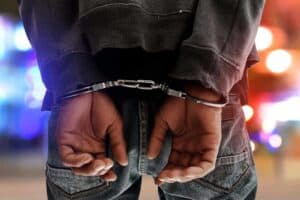Hong Kong tycoon Li Ka-shing, 89, who has announced his retirement, started his career selling plastic flowers and spent seven decades building a vast business empire spanning everything from container ports to telecommunications.

The billionaire earned the nickname “Superman” for his business acumen and was so influential in Hong Kong that islanders joked he could prevent typhoons from hitting on working days.
Li’s companies are part of the fabric of Hong Kong life, providing everything from internet services to supermarket chains, while his decisions have the potential to affect property and utility prices for the city’s seven million residents as investors hang on his every word.
Li was born in 1928 in the mainland Chinese city of Chaozhou.
His family fled to neighbouring Hong Kong during the Sino-Japanese War — Li recalled bombs being dropped on his hometown when he was in primary school in an interview with Forbes Magazine in 2012.
He first started his own business in 1950 manufacturing plastic flowers, calling the company Cheung Kong after China’s Yangtze River.
But after diversifying into property he saw large profits in the 1960s and in the following decades his businesses expanded into a diverse range of sectors.
As the business grew, so did its global reach, with the 1980s seeing the firm make investments in the Canadian property and energy sectors.
According to Forbes his companies now employ 310,000 people in more than 50 countries.
The magazine listed Li as the world’s 23rd richest person in a 2018 ranking of leading billionaires — three places behind Alibaba founder Jack Ma and six behind Tencent’s Pony Ma — with a net worth of $34.9 billion.
“Looking back all these years, it’s my honour to have founded Cheung Kong and to have served society,” Li told a packed room of journalists in Hong Kong as he announced his retirement on Friday.
“It’s been my greatest honor,” he said.
– ‘Everyone has a goal’ –
Li invested heavily in China in the 1990s, the dedicated capitalist courting Beijing’s communist leaders as the Asian nation began to emerge as an economic superpower.
But recent years have seen him offload major Chinese property investments, in a move seen as part of a quest for stability for his business and a sign of diminishing confidence, as the mainland’s formerly stratospheric growth rates cool.
The moved irked Chinese critics.
“He is worthy of the nickname ‘Superman,’ but he may not be suitable as a bellwether for the future,” The Global Times, a newspaper close to China’s ruling communist party, said in 2015.
“Li’s investment is a drop in the ocean compared to the huge size of the Chinese economy,” it said.
He has also sought to trim his Hong Kong assets and his CK Asset Holdings sold its stake in the Center skyscraper — one of the jewels in the crown of his property portfolio in the city — in November for a record HK$40.2 billon ($5.2 billion).
Analysts said the deal showed CK Asset’s move to diversify out of real estate as it expands into infrastructure and energy.
Three years ago Li announced a sweeping re-arrangement of his vast business empire, which was expected to pave the way for him to hand over the reins to his eldest son Victor.
The re-structure combined assets from multiple sectors under two new listed companies.
After the announcement of the revamp, when asked if he was preparing to pass the baton to his son, a lively Li said he would have to retire some day.
“The tracks have been laid down, everyone has a goal, it’s a good thing for the company’s foundation,” he said.
Support Local Journalism
Add The Citizen as a Preferred Source on Google and follow us on Google News to see more of our trusted reporting in Google News and Top Stories.






